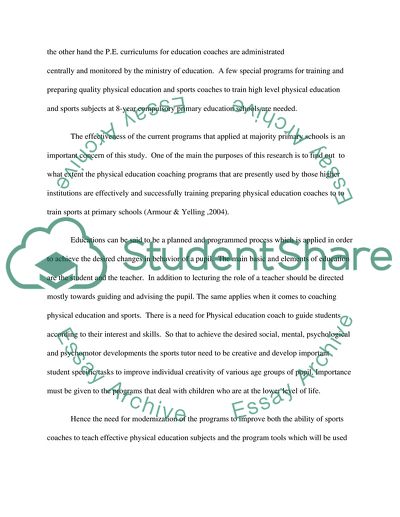Cite this document
(“Physical Education in Primary Schools Dissertation”, n.d.)
Retrieved from https://studentshare.org/education/1576262-what-are-the-eperiences-of-sports-coaches-in-teaching-primary-school-physical-education
Retrieved from https://studentshare.org/education/1576262-what-are-the-eperiences-of-sports-coaches-in-teaching-primary-school-physical-education
(Physical Education in Primary Schools Dissertation)
https://studentshare.org/education/1576262-what-are-the-eperiences-of-sports-coaches-in-teaching-primary-school-physical-education.
https://studentshare.org/education/1576262-what-are-the-eperiences-of-sports-coaches-in-teaching-primary-school-physical-education.
“Physical Education in Primary Schools Dissertation”, n.d. https://studentshare.org/education/1576262-what-are-the-eperiences-of-sports-coaches-in-teaching-primary-school-physical-education.


